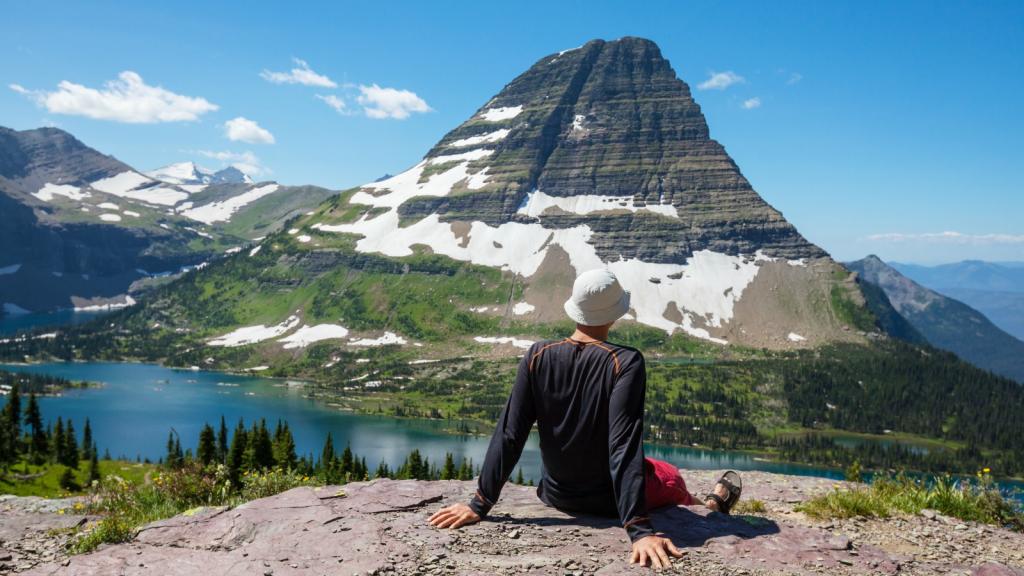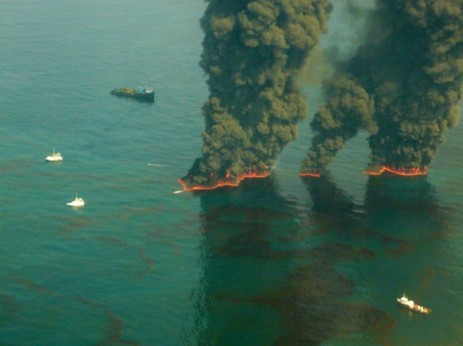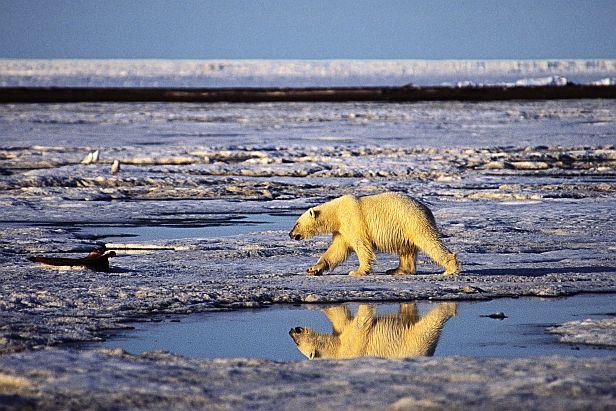US Geological Survey
-
The Trump administration escalates its fight against climate science
Even Steve Bannon thinks Trump's latest climate plan is too extreme.
-
Glacier National Park used to have 150 glaciers. Now it has 26.
The park is on the "leading edge" of worldwide glacier retreat.
-
Political leaders lowballed Gulf oil spill estimates
In the first weeks after the Deepwater Horizon rig exploded, spilling oil into the Gulf of Mexico, government scientists were scrambling to figure out how much oil was leaking from the well. These estimates kept being revised upwards as the scientists got more information — and then revised downwards as politicians pressured them to make […]
-
Indigenous Alaskans have no doubt the climate is changing
The U.S. Geological Survey had a novel idea about how to better understand climate change and its impacts: Ask the people most likely to be experiencing it. These researchers asked a group of people from Alaska's indigenous communities what their observations of climate change had been. Their basic response: Everything's all messed up.
-
California 'superstorms' could make quakes look tame, and Brisbane look dry
California could be at risk for Old Testament-level storms that could do four to five times the damage of a major earthquake.
-
Southwest faces ‘permanent drying’ by 2050
A major new report warns that on our current emissions path, we face the severe risk of abrupt climate change impacts. The basic conclusions themselves are nothing new. But what is stunning is that these warnings come from the United States Geological Survey — the Bush Administration (!). This new science-based report, Abrupt Climate Change, […]
-
Following the path of contaminants from your bathroom to the birds
This is a story about sludge, worms, and songbirds, and it starts in your bathroom cabinet.
 Photo: Southernpixel
Photo: SouthernpixelWhen we treat our wastewater to remove "biosolids" -- a polite term for our human waste -- all sorts of other things end up in the leftover sludge, including the drugs we take and the "personal care products" like lotion, shampoo, makeup, and cologne that we slather on our bodies, which have been absorbed through our skin and then excreted in our waste. The treated wastewater is usually discharged into the local river, and the sludge that's been removed from it frequently becomes fertilizer for agricultural production.
Researchers at the U.S. Geological Survey have found that the hungry earthworms who feed on this sludge in farm fields contain concentrated levels of our drugs and personal care products in their bodies. In fact, a USGS study published in February found that the compounds bioaccumulate in earthworms, meaning that the worms bear higher levels of these pollutants than the surrounding soil does. The USGS researchers note that worms could become monitoring species to help us determine the relative pollution levels in soil, but state that the pollution in these worms have "unknown effects" for wildlife (read the story in Science News).
"Unknown" maybe in that particular study, but researchers in the U.K. published a disturbing study about a week later that provides some insight into what happens to the polluted worms: Birds eat them.
-
U.S. study says two-thirds of polar bears will be gone by 2050
The U.S. Geological Survey released a grim study of polar bears on Friday, concluding that two-thirds of the world’s polar bears will be gone by 2050. Polar bears in Alaska and other areas outside the very far north will be most out of luck, according to the study; it forecasts that precisely zero polar bears […]




